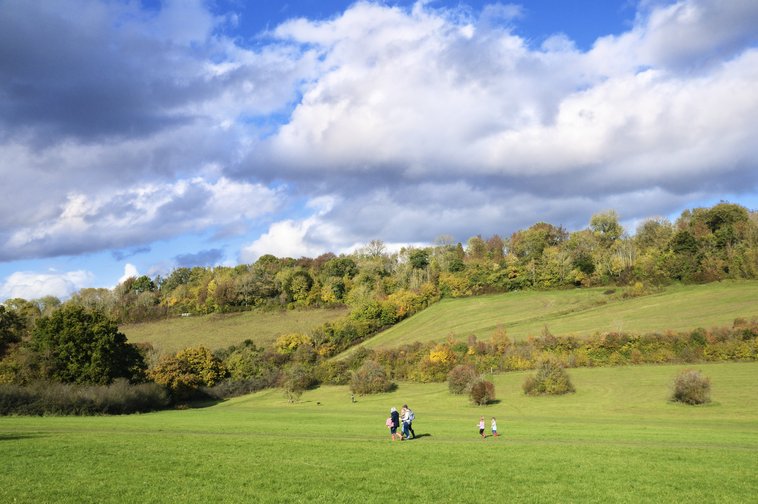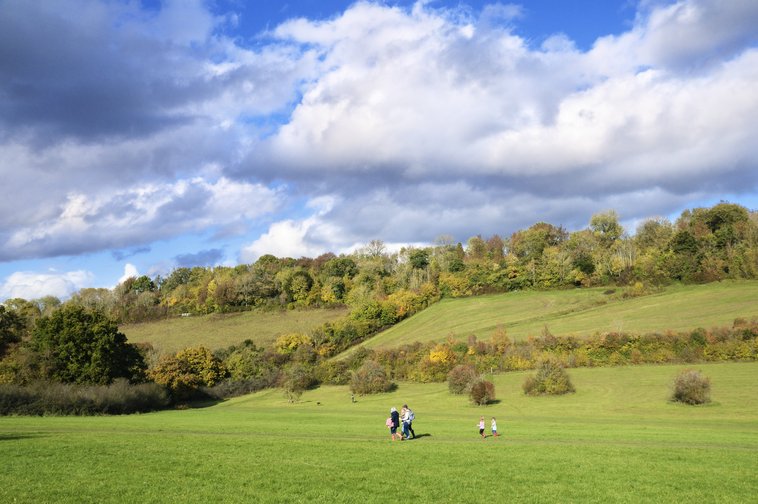From Open Democracy
Tory lack of seriousness on environmental issues is across the board.
Natural England’s key recommendation for halting devastating wildlife decline was snubbed by ministers

Happy Valley Park is a 25-acre SSSI on the border of Surrey and Croydon
The government rejected calls from its own nature experts for a legally binding target to halt England’s catastrophic decline in wildlife, openDemocracy can reveal.
Natural England privately told ministers the best way to deliver their promises to restore wildlife would be to set a strict target for improving conditions at the most important and threatened nature sites, known as Sites of Special Scientific Interest (SSSIs). But the recommendation did not make it into plans announced by the Department for Environment, Food and Rural Affairs (Defra).
There are more than 4,000 SSSIs in England, including The New Forest, Morecambe Bay, the Humber Estuary and the River Wye. Two thirds of the sites have not been assessed by Natural England for more than a decade, partly due to budget cuts at the agency. Of those that have been assessed since 2021, only 27% are in a favourable condition.
Natural England chair Tony Juniper wrote to environment minister Rebecca Pow in July last year about the government’s commitment to halt species loss by 2030.
In the letter, he said a legally binding target to improve conditions at SSSIs would “provide the greatest likelihood of success”.
He added that “many protected sites are in poor condition” and said setting a target under the Environment Act 2021 to improve them would “help to ensure sufficient priority is given to targeting resources, such as through ELM [the Environmental Land Management farm subsidy scheme]”.
OpenDemocracy had to fight to obtain the letter from Defra, which initially rejected a Freedom of Information request submitted in January. Defra only released the letter this month after we appealed to the Information Commissioner’s Office.
Natural England also gave specific advice last year on what the target should be. In a separate submission to Defra, also obtained by openDemocracy, it said the target should be “to restore 75% of our one million hectares of terrestrial and freshwater protected sites to favourable condition by 2042”. It added: “This would give statutory weight to this critical component of nature recovery.”
But the recommendation was not included in the legally binding environmental targets announced by environment secretary Thérèse Coffey in December. Instead, in January Defra announced a non-legally binding “interim target” for 50% of SSSIs to have “actions on track to achieve favourable condition by 31 January 2028”.
Richard Benwell, chief executive of Wildlife and Countryside Link, a coalition of nature charities, told openDemocracy: “Advice from the top of Natural England on its primary area of expertise should not be lightly ignored. Tony Juniper’s important letter highlights the ongoing crisis of poor condition in England’s most precious wildlife sites and the need for government action, yet somehow the advice went unheeded.
“The SSSI network must be expanded and improved in short order. A legal target, backed by new investment in SSSI management, would drive the rapid progress needed to have any hope of halting wildlife decline in the next Parliament.”
The poor condition of SSSIs was exposed this week in a report by Wild Justice, the campaign group co-founded by wildlife presenter Chris Packham.
Wild Justice analysed Natural England data on the condition of SSSIs and found evidence that they may be in an even worse state than the government has admitted.
Defra said in March last year that 38% of the 4,000 SSSIs in England were in a favourable condition, but the figure was based on the latest assessments, most of which are over a decade old.
Overgrazing, intensive farming, grouse moor burning and invasive species are some of the reasons most SSSIs fail to achieve a favourable condition.
Mark Avery, co-director of Wild Justice, said: “It seems that most of our English SSSIs have been neglected when it comes to monitoring their condition.
“The fact that two-thirds of these special places haven’t been looked at in over ten years by Natural England is troubling and disappointing. Especially as it looks like our most special areas are being damaged, and the public are none-the-wiser. The system has fallen into disrepair and we can have little faith in the published Defra figures on some of our most protected areas.”
A Defra spokesperson said: “We worked closely with Natural England in setting the interim targets and consulted widely on the legally binding targets set out last year – we will continue to work closely with them to achieve both commitments.”



